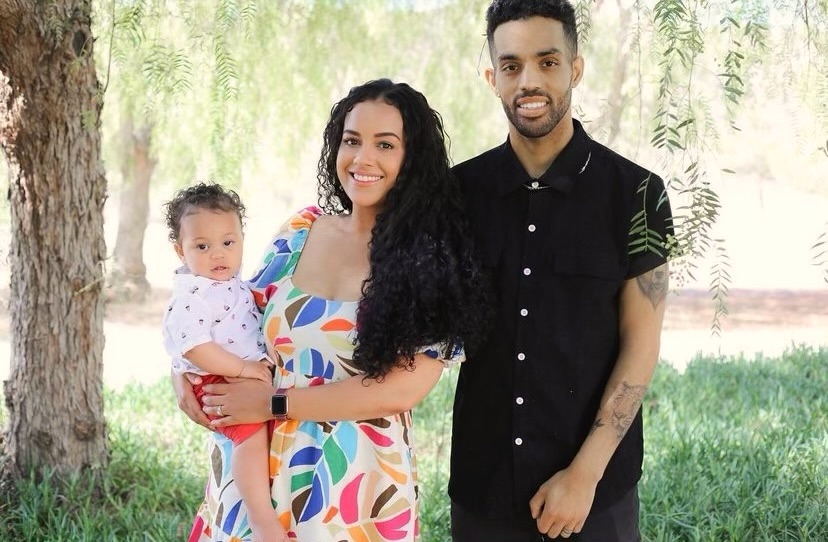Featured Articles
HOW TO HEAR FROM GOD
Published
1 year agoon

By Dyrie M. Francis
Amidst the clutter and noises of everyday life, some would relegate hearing the voice of God to pastors and spiritual leaders whose vocation requires them to commune with God for enablement to minister to His Church. The truth is, God delights to speak to His children and to have them listen to Him. Scriptures are replete with examples of individuals and even a nation that heard God speak.
From the beginning, God enjoyed fellowship with Adam and Eve in the Garden of Eden until sin disrupted the relationship between God and humankind (Genesis 3:1-10). God spoke to Abram (whose name was later changed to Abraham) and directed him to move to a country He would give to him and his descendants if he obeyed God’s commands. God promised to bless all nations through Abraham (Genesis 12:3). Imagine Samuel, a young boy hearing God calling him by name in order to have a conversation with him. Jeremiah, whom God ordained as a prophet to the nations, felt inadequate for the task, but God promised to enable him (Jeremiah 1:4-10). Exodus 33:11 records that God spoke with Moses “as a man speaks to his friend.” Joshua, Moses’ successor, encountered God as deliverer and Savior in a time of military defeat against the nation of Ai. God revealed to Joshua the reason Israel was defeated and the steps to regain victory (Joshua 7:4-11).
The New Testament records many instances when God spoke to the disciples; for example, on the Mountain of Transfiguration (Luke 9:35); to Saul the persecutor of the Church, while he was on the Damascus Road (Acts 9:1-6); and to Peter while he was in a trance on the rooftop (Acts 10:9-16). Lastly, John the beloved apostle recorded the end-time revelation of Jesus (Revelation 1:11; 2, 3, 22:12,16, 20).
God desires to speak with every one of His children still today! God speaks through dreams, visions, the Scriptures, by feelings or thoughts, and less commonly, audibly. But His children are often desensitized to the gentleness of His voice.
My then four-year-old son once asked, “Mommy, why does God speak so soft?”
I asked, “What do you mean?”
He responded, “I have been trying to hear God, but He speaks so soft!”
It was a great teaching moment coupled with a deep sense of joy that my four-year-old desired to hear God audibly. I encouraged him to listen more keenly and even ask God to speak more plainly to him. God answered about a year later when my son woke suddenly and asked about a missionary our family prayed for regularly. He told us something was wrong with her. He also told us that one of our local pastors (whom he mentioned by name) was undergoing a problem. We encouraged him to pray for both persons and joined him in prayer. Shortly after, the pastor revealed that his church was going through a serious split. We also received news that the missionary was having some challenges overseas as well.
Four factors that help us hear God’s gentle voice are focus, time, self-discipline, and faith. Through the goodness and grace of God, we can hear Him while growing in these areas.
Factor #1 — FOCUS
We must guard against distraction, our number one enemy when it comes to hearing from God. The plethora of distractors in our personal environment from waking to retiring to bed clamors for attention and draws focus away from God’s indwelling Holy Spirit, our teacher and guide. Our homes and automobiles are filled with technological gadgets. The cacophony of music genres, movies, world news, sports, and electronic games compete for the minds and captivate the heart. Jacob’s instruction to his family to put away their foreign gods, purify themselves, and then come seek God together at Bethel (Genesis 35:2-3) would benefit our culture. Sadly, some gadgets are now taken to the house of worship. Regardless of age, believers must be aware of the impact of the distractions and intentionally secure a “quiet” place to meet with God. Even a quiet corner, a closet if need be, a spot outside the house or apartment, or a parked vehicle may change the trajectory from distraction to the ability to discern God’s presence and hear Him speak.
Factor # 2 – TIME
Everyone is allotted the same 24 hours daily – or 1,440 minutes or 86,400 seconds. The popular maxim reminds us that “time wasted can never be regained!” Consider the benefits to the average person who reflects on the wastefulness of the seconds, minutes, or hours spent on activities that do not foster spiritual growth and chooses instead to reverse their course and listen and meditate more on the Scriptures and on hearing God.
Commonly, our prayers are more like monologues. We speak, God listens, and we run off without allowing Him to speak to us. We blame our lack of prayer, meditation, and hearing God on our overwhelming schedules. Life becomes an endless cycle of activity after activity! Yet in 1 Kings 19:12, when Elijah needed to hear from God, he observed that God was not found in the noisy wind, nor the earthquake, nor the fire. Elijah heard God in His still, gentle whisper. We must choose to listen to hear!
Jesus directed His disciples to “come aside . . . and rest” (Mark 6:31, NKJV). This rest was more than physical rest. It was resting in God, away even from the miracles of healing and deliverance and the mighty revival. It was gleaning from God’s love and compassion for the lost and broken and gaining power to minister effectively. Working for God is no substitute for resting in God! Jesus commended Mary for choosing “the better part” in contrast to Martha, who had immersed herself in preparing for the physical needs of Jesus but neglected His lifegiving spiritual food in the process (Luke 10:41-42). The enemies of time spent with God are the busyness and often non-edifying activities that eat away the irreplaceable 86,400 seconds allotted each day.
Factor #3 – SELF-DISCIPLINE
Self-discipline impacts our ability to hear God speak. The Oxford dictionary defines self-discipline as “the ability to pursue what one thinks is right despite temptations to abandon it.” The story is told of an Asian pastor who had ministered in the villages all day and arrived home after midnight. Yet he awakened at 4:00 a.m. to pray and seek God’s help for the day. His visiting western companion was alarmed at the pastor’s early rising. The praying minister responded that he needed to hear from God far more than his body needed sleep.
David meditated on the Lord day and night (Psalm 63:6; 119:164) and enjoined us to offer God the sacrifice of praise and thanksgiving. Jesus, a model of self-discipline, rose early and went to a quiet place to pray and commune with the Father (Mark 1:35). In His most sorrowful moment, He separated Himself from the disciples and entreated God the Father for strength to face His “cup” of suffering at Calvary for our sins.
Guard against self-indulgence, the enemy of self-discipline. We are tempted to indulge more than we should at the expense of self-discipline which goads us to continue to do what is right despite challenges we may encounter. The lines of a famous hymn “Lead Me to Calvary” strengthen my resolve to seek Him despite my challenges and limitations.
May I be willing, Lord, to bear
Daily my cross for Thee
Even Thy cup of grief to share
Thou hast borne all for me
Lest I forget Gethsemane
Lest I forget Thine agony
Lest I forget Thy love for me
Lead me to Calvary
Factor #4 – FAITH IN GOD
Faith in God is critical for hearing Him speak. Jesus promised to send the Comforter, the Holy Spirit who would teach us all things (John 14:16-17, 26). Often, we choose our ways and make decisions based on market principles. But faith holds firmly to God’s promises and is undeterred by trials. The enemy of faith is unbelief (Ephesians 6:16). The writer of Hebrews emphasized, “Without faith it is impossible to please Him” (Hebrews 11:6).
Growing in these four areas can help us become more sensitive to God’s voice. Some Christian denominations teach that God does not still speak outside of the written text. Over the course of my Christian experience, God has spoken clearly to me many times. Once was loud, sounding like thunder. Most often He has spoken to me through my thoughts and Scriptures. Some of His messages were instructive; others corrective or futuristic. Two of the messages warned of impending disaster to our nation which occurred on 9/11 and at the Olympic Village in Georgia. Witnesses can testify to the latter two since I reported God’s revelation at a prayer gathering before they occurred.
One of the most difficult assignments I received was when I was given a message for a couple that I respected highly and considered role models. God’s message was a call to repent, or else “they would be like Ananias and Sapphira” (Acts 5). I was petrified and unwilling, pleading with God to release me from this assignment, but He did not! I hoped no one would be home as I rang the doorbell and literally ran back to my car. But before I could turn on the ignition, the front door opened and a voice said, “Wait!”
The tears of dread flowed. I blurted out the message and began to make a hasty retreat. Only the wife was present, and she asked me not to leave. She began to weep and made confession.
I was shocked! I had judged God to be hard on these “good Christians.” I prayed for the family and left saddened and broken. God cares about everything that concerns us.
We must continue to pray for sensitivity to God’s Spirit, hearing ears, a discerning spirit, and an obedient heart. May He help us to focus on the “better part” as Mary did, to guard the seconds and minutes because they add up to days, weeks, months, and years; to grow in self-discipline, and increase in faith nourished by the Word of God. Then we are more likely to pray, listen, and hear God speak to us! Keep the spiritual line open. God continues to speak in our generation (Revelation 3:20)!
About the Author
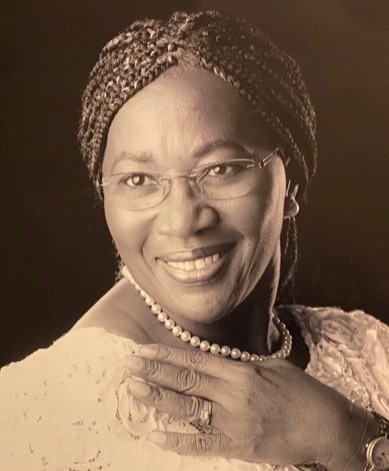
Dyrie Francis R.N., M.S.N., M.A.C.L. lives in South Florida, where she and her husband, Karl, pioneered Living Word Open Bible Church in Cooper City, thirty years ago. The congregation is comprised of believers from 22 countries, including a minority of Caucasian Americans. The church celebrates unity in diversity and eagerly pursues the fulfillment of the Great Commission regardless of race or color. God and family are central to Dyrie’s life and ministry paradigm. She loves people and serves through teaching the Word and the ministry of prayer. Underlying her calling to service is a deep and inescapable sensitivity to God’s heart on justice and the plight of the oppressed. She serves as a bridge to many and will continue by the grace of God. Dyrie and Karl have two adult sons, Jonathan (married to Andrea) and Bryan (married to Terrone) and one granddaughter, Christine Noelle.

In 2017, my husband Dyecol and I were asked to be the interim pastors of Word of Life Open Bible Church in Lehigh Acres, Florida. Little did we know that our two weeks as interim pastors would turn into seven years and counting. After accepting the call to be the permanent pastors, we moved to Lehigh in September, right after Hurricane Ivan had hit. There was no electricity in the city, and it felt like we were moving into darkness and chaos. I didn’t realize we were also moving into the rest of our lives.
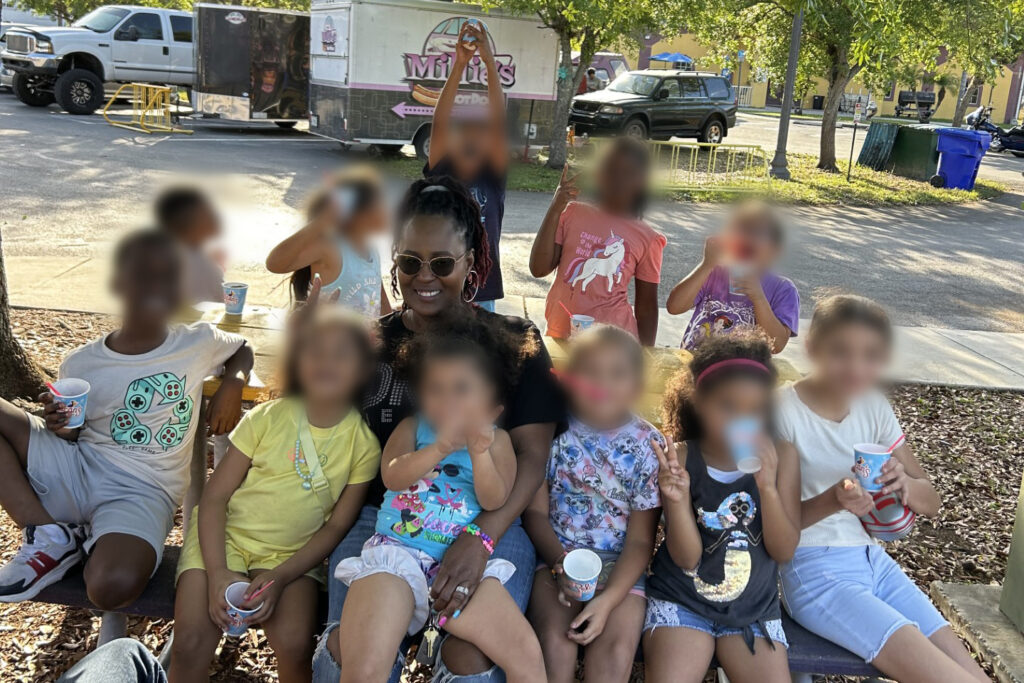
Dyecol and I had never had children together. Shortly after our move to Lehigh, we saw a billboard for an adoption agency. Dyecol went to the agency’s office for more information, and it wasn’t long before we were taking a class on adoption. The instructor of the class emphasized how much greater our chances would be to adopt through fostering, and pretty soon we got our first call to foster a three-year-old girl named Isabella. I will never forget seeing that scared little girl walk through our doorway. I scooped her up in my arms, she laid her head on my shoulder, and my future was sealed.
We’d had Isabella for only a month when we got a call for a second little girl, Maria. Maria’s sister Ruby would join her a few months later, and not long after Ruby, we got a call for a fourth child, our first newborn. This baby was only six days old and had been born addicted to drugs. We were told her parents didn’t want her, and we became excited that this baby might become ours. We attached, weaned her off drugs, and she began to thrive. It was then that her biological father decided that he wanted her. As difficult as this was, it was further complicated by the fact that our hopes of adopting the other girls fell through around the same time. We were shattered. This taste of parenthood had convinced me that I wanted to be a mom again, but fostering was too difficult. I told myself, “Never ever again!” Until I got the next call.
Sometimes God walks you through a process of loss and then He dumps blessing on you when you least expect it.
“Ms. Walker, I have a little girl for you….”
“I don’t know, we’re taking a break.”
“Ms. Walker, I’m telling you, you’re going to want this little girl.”
(Deep Breath.) “Okay.”
Our case worker brought over this ten-year-old little girl with big old grandma glasses, fuzzy hair, and the cutest smile. That little girl walked into our lives, and she has changed us forever. Her name is Anna-Tae Walker, and she became our first adopted daughter. Two months later, we were introduced to our daughter Heavenly. We loved her from the moment we saw her. Sometimes you just know. I said to my husband, “She’s not leaving.” True to my word, Heavenly AND her brother Joshua became ours through adoption.
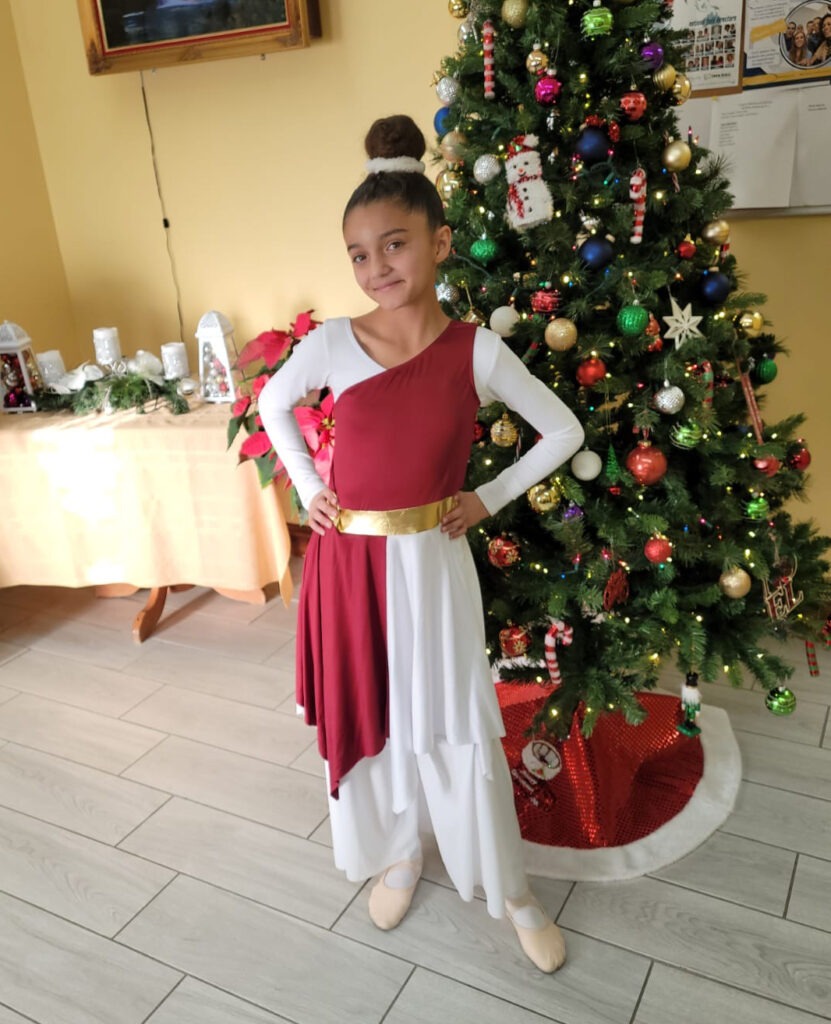
Sometimes God walks you through a process of loss and then He dumps blessing on you when you least expect it. I didn’t understand why we couldn’t have the first little girls we tried to adopt, but God said no. He knew who our kids were.
Despite my having three adopted children, I continued to take new placements. My first experiences fostering almost broke me, but as I continued to say “yes” to each new child, God reinforced my heart with His strength. Instead of shrinking with each loss, my heart grows bigger as I watch family reunifications. God has gifted me with the capacity to love and to lose.
One night as I was lying on my bed, the Lord gave me a word: “Walker’s House of Hope.” I told my husband, “This is what we’re going to name the house where we raise the children God brings to us.” We started praying, “Lord, if you give us a bigger house we will take more children.” At that time, we had seven children in a three-bedroom house. It wasn’t long before the Lord provided us with a four-bedroom house.
God has gifted me with the capacity to love and to lose.
I got the call almost immediately: “Ms. Walker, we have a sibling group of three.”
“You know I have seven children, right?”
“Yes, Ms. Walker, but you were born for this.”
Immediately the voice of the Lord came to me, reminding me of my prayer. He had given me a bigger house; I was obligated to fulfill my promise. So, we ran out and bought another bunk bed.
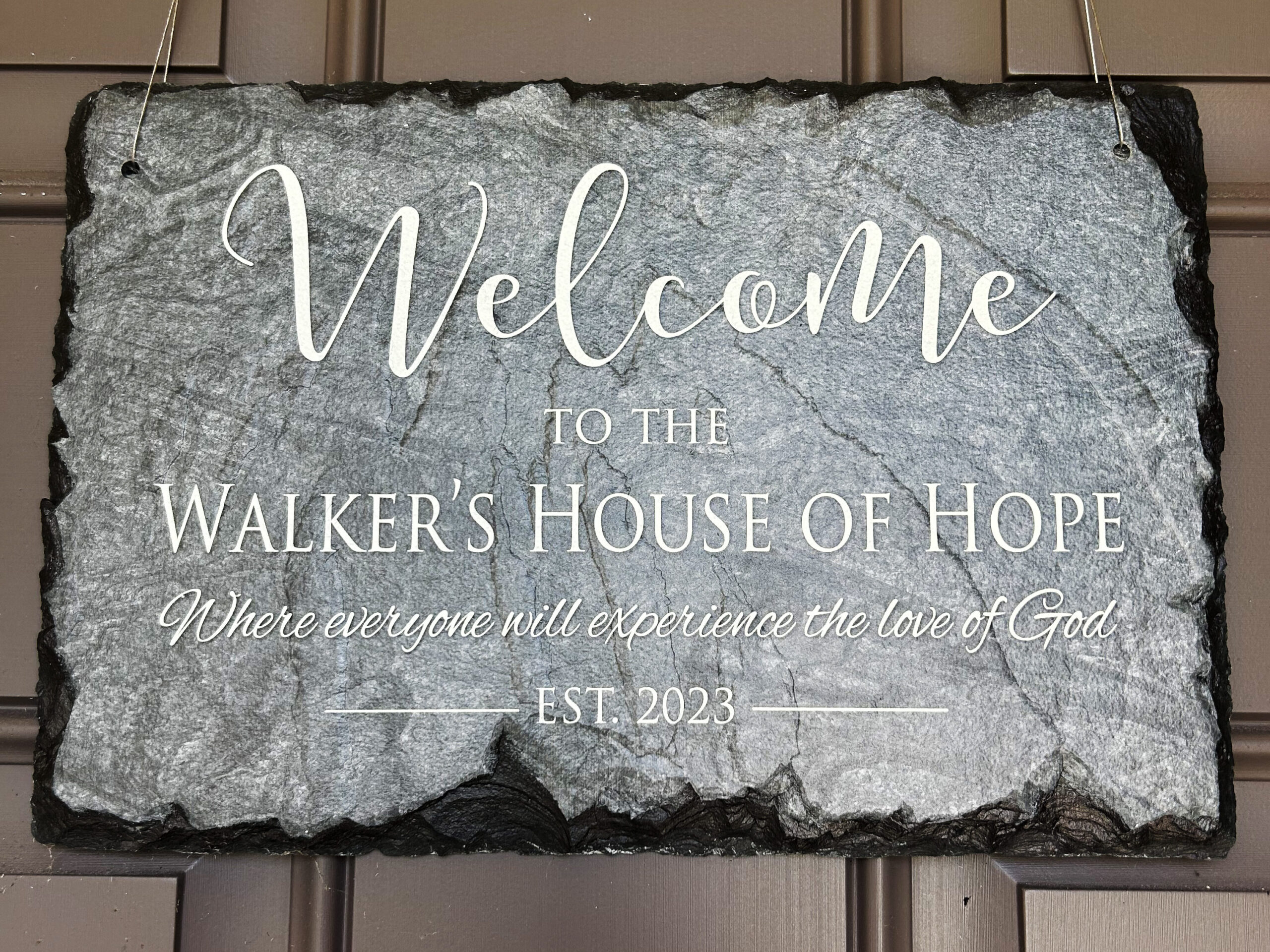
Today, we have ten children: three adopted and seven fostered. Every day after school, I hear ten voices at once, beautiful chaos. Each time I say aloud, “I have ten children,” I can’t believe it – not because it’s too much, but because it feels comfortable. When I dream about the future, I see myself with even more children, running around a big property and coming in to eat dinner around our huge kitchen table. I have found my calling, and I am believing for God to gift us with the house that’s as big as my heart.
I had a sign made that hangs in our current home: “Walker’s House of Hope.” When I look at it, I say to God, “This is not it. But this is it for now.”
Seven years ago, we moved to a city that was in chaos and darkness. Today, we live in a home of chaos and light. And as I look around my busy kitchen table, I have never been more excited about the rest of my life.
About the Author
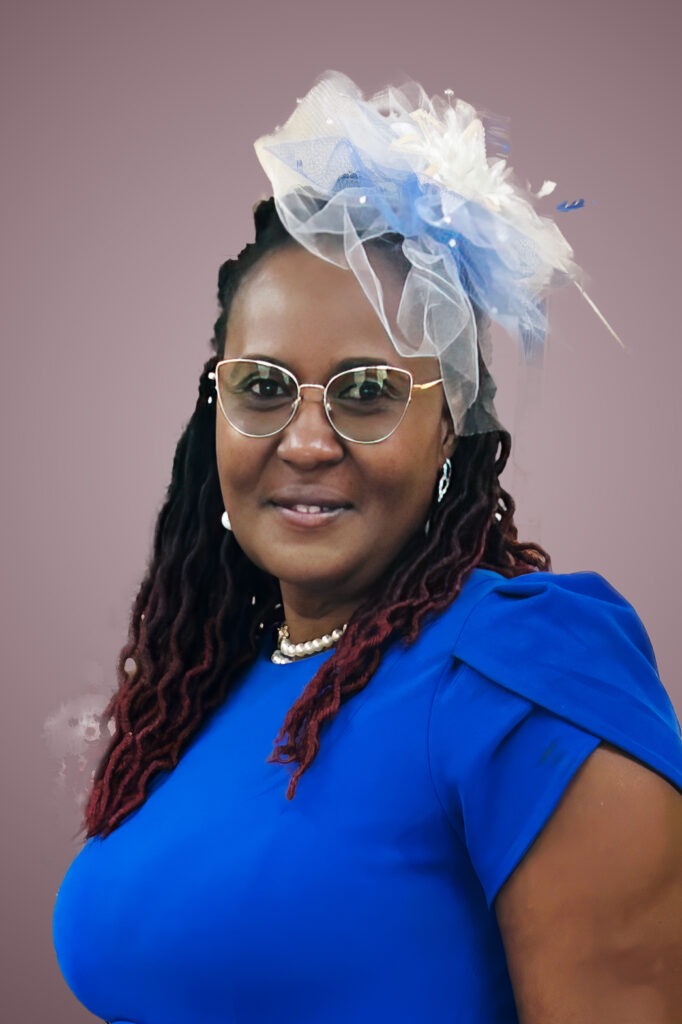
Taneasha Walker
Taneasha Walker is currently co-pastoring Word of Life Open Bible Church in Lehigh Acres, Florida, with her husband Dyecol. She serves on the Southeast Regional Board as an At- Large member. Taneasha has gained experience in every area of ministry, using this knowledge to effectively care for the local church body as well as the children that have been entrusted to her. She is passionate about prayer, utilizing it in every endeavor. In her free time, Taneasha’s hobbies include reading, singing, and traveling.
Featured Articles
A Finely Woven Tapestry: Seventy Years in Trinidad and Tobago
Published
3 months agoon
May 1, 2024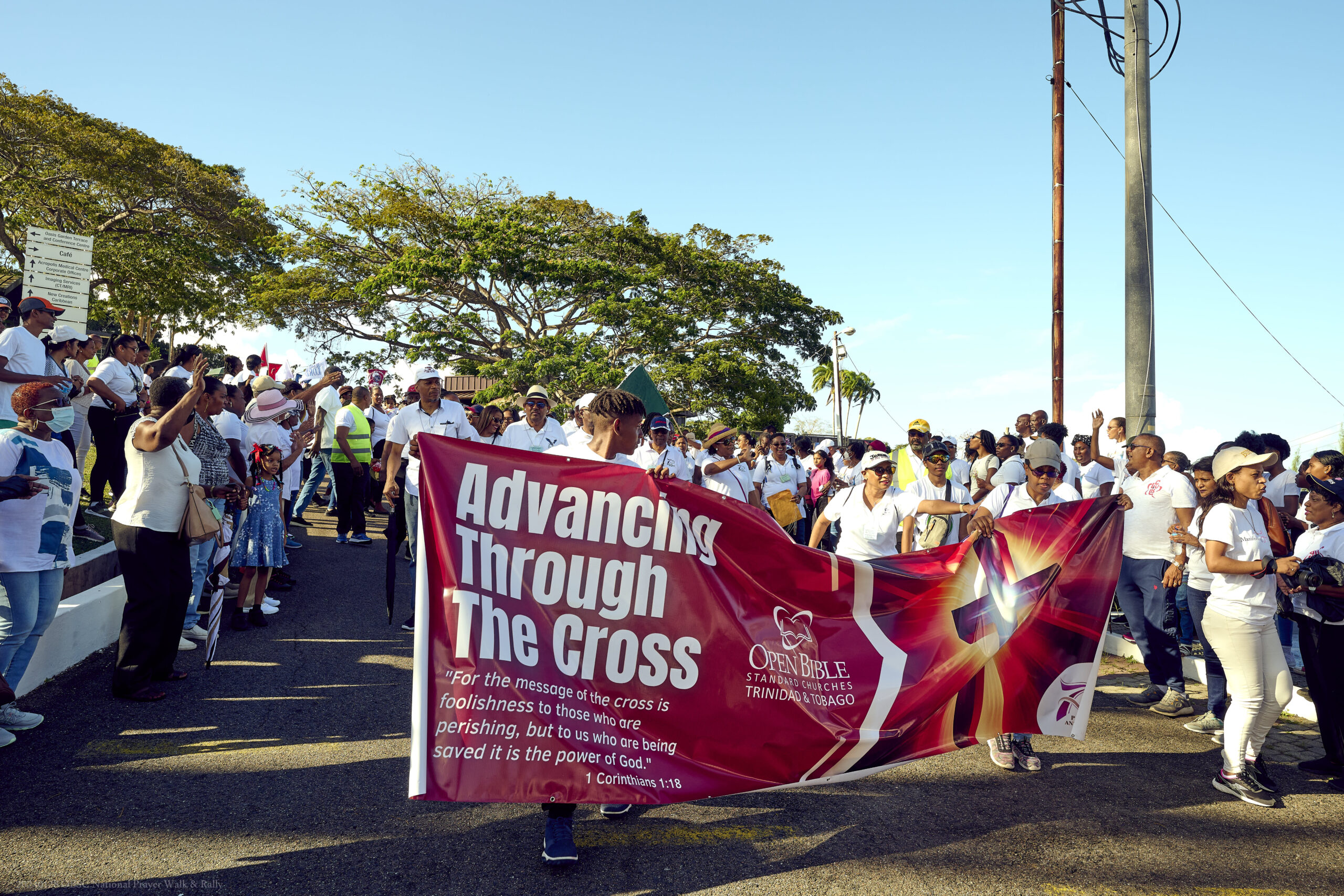
In 2024 Open Bible Standard Churches of Trinidad and Tobago (OBSCTT) commemorates its platinum anniversary: seventy years of faith, strength, and community. Symbolically, Trinidad and Tobago’s Open Bible story unfolds as a finely woven tapestry, blending diverse threads and vibrant and intricate patterns to form a beautiful piece of art. For seven decades, God has woven OBSCTT’s narrative, skillfully blending elements like missionaries, innovative outreach, powerful prayer, unified discipleship, embrace of revival, and the vibrant people of Trinidad and Tobago. Each thread, even if seeming inconsequential, plays a distinctive role in contributing to the magnificent tapestry of their journey.
Situated in the South Caribbean Sea, the Republic of Trinidad and Tobago boasts a rich cultural and religious diversity reflecting African, Indian, European, Chinese, and other influences. Christian, Hindu, Muslim, and indigenous beliefs are all practiced there. Despite Trinidad and Tobago’s small geographical footprint and population of just 1.4 million, Open Bible’s influence has left a significant impact both nationally and globally, contributing to Trinidad and Tobago’s social, civic, and healthcare realms (the founding of the Acropolis Medical Centre being a primary example). OBSCTT boasts nearly one hundred churches, numerous kindergartens, a private high school, INSTE, and a Bible college with three campuses.
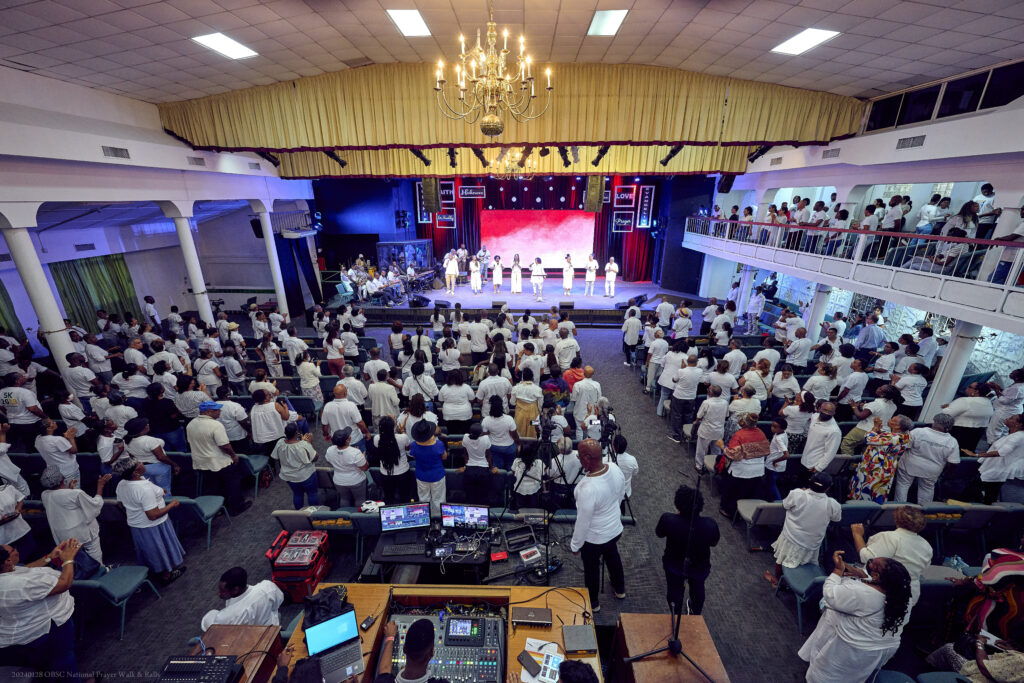
From its beginnings in 1956 under missionaries Kaare and Jean Wilhelmsen, OBSCTT had an emphasis on global outreach. Beginning their outreach in the neighboring country of Grenada in 1971, the churches in Trinidad and Tobago continually expanded their reach, eventually planting churches in South America, North America, Africa, and Europe. Trinidad and Tobago is also the home of Global Missions’ School of Global Leadership (SGL). The founding fathers and mothers of OBSCTT were full of missionary zeal and implanted this passion into the DNA of the churches. Today, it is a vital part of their identity.
From the first missionaries, the Wilhelmsens, to the present-day Lumbard family, thirty-eight Open Bible missionaries have served on the islands. These missionaries laid a robust foundation and equipped capable local leaders. Today, the relationship of local leaders with Open Bible’s Global Missions is a uniquely collaborative partnership. This collaboration and sense of unity was part of the foundation set by the missionaries from the very beginning. Dr. Don Bryan and his wife Ruth were missionaries in the founding days of Open Bible in Trinidad and Tobago (1956-1970). Dr. Bryan spoke of how togetherness was key to Open Bible’s success in Trinidad. Through prayer, the churches and missionaries worked together as a team “so the devil couldn’t divide us.”
Prayer was a unifying and foundational value in the churches. In particular, the Thursday morning Mountain Movers’ prayer meetings at the San Fernando church echoed Acts 19:11: “God did extraordinary miracles…” (NIV). Miracles were the norm, transforming lives as blind eyes were opened and demons cast out. Powerful proclamation of the gospel and God’s evident presence often led to entire families committing their lives to Christ, bringing explosive growth. Seventy years later, the powers of darkness persist but continue to be confronted in prayer services in many churches.

Recognizing the value Trinidadians placed on education, missionaries perceived a Kingdom opportunity and established Open Bible High School (OBHS) in 1967, emphasizing both academics and spiritual development to a student body from diverse faiths. At one time OBHS’s enrollment was the largest in the history of private schools on the island.
Open Bible Institute of Trinidad (OBIT), founded in 1956, continues to train Christian leaders for pastoral, missions, and evangelism ministries. It incorporates theological and uniquely practical training that is an engine for outreach and discipleship. In the early days, student teams went to outlying areas each Thursday to practice the skills they learned in Bible school. There they held outdoor meetings, connected with and discipled Mountain Movers attendees, gathered others and started Sunday schools, and baptized new converts. Their “practice” ministry began birthing new churches, and five of the first six OBSCTT churches were started by the students while still in school!
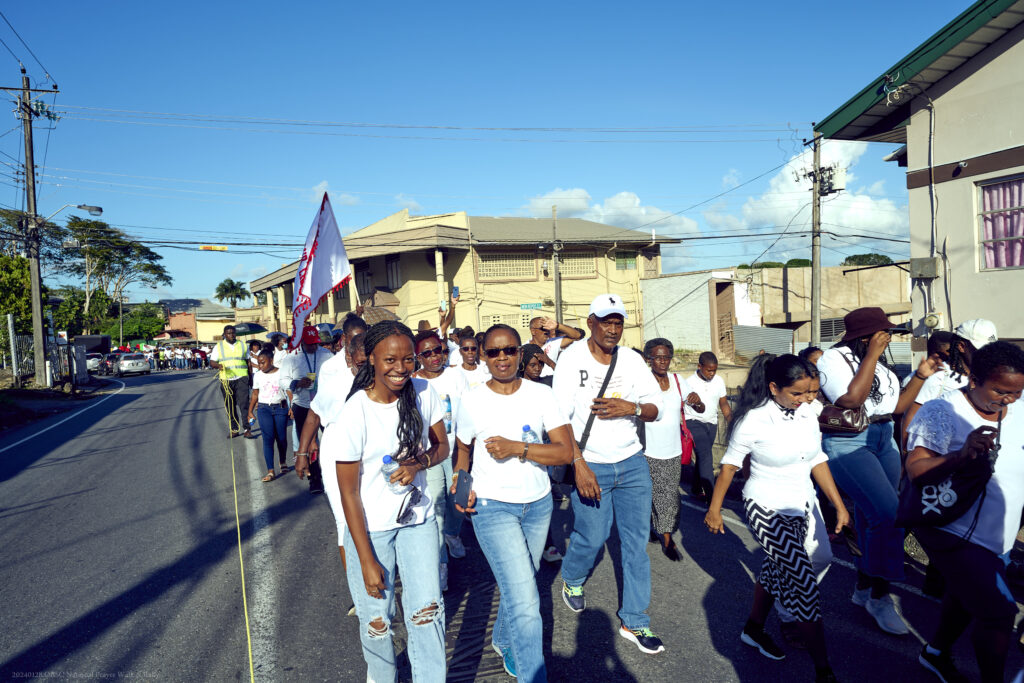
Just as there are many Open Bible missionaries woven into the OBSCTT tapestry, so Trinidad and Tobago is woven into the tapestries of the missionaries themselves, leaving an indelible mark on their lives. It wasn’t just the great food found on the islands that made an impression! More significantly, it was the relationships they formed there that shaped the missionaries. Many of the following missionaries have joined the “great cloud of witnesses,” but others share some of their stories (click HERE to see video interview clips): Kaare and Jean Wilhelmsen, Minnie Bruns, Don and Ruth Bryan, A.E. and Ginny Mitchell, Margaret Crandall, Dora Turner, William and Donna Whitlow, Robert and Wanda Moon, Ed and Betty Wood, Weldon and Rosetta Davis, Melvin and Barbara Kelderman, Tom and Helen Clark, Clayton and Suzanne Crymes, Leona Janzen (Venditti), John and Nadine Simmons, Phil and Priscilla Newell, Dan and Mardell LeLaCheur, Harvey and Alys Klapstein, Grant and Miriam Sickles, and Mike and Pamela Lumbard.
Symbolically, Trinidad and Tobago’s Open Bible story unfolds as a finely woven tapestry, blending diverse threads and vibrant and intricate patterns to form a beautiful piece of art.
The most vibrant and prominent threads in the tapestry God is weaving for Open Bible Standard Churches of Trinidad and Tobago are the nationals themselves. The 2 Timothy 2:2 principle of entrusting the work to others who will pass it on to others has been a key to continued growth and expansion. The names are too many to share, but here are just a few of the local ministers who have led with distinction over the years: Revs. Dr. Benjamin Agard, Charles and Charmaine Alexis, Keith Armoogan, Desmond Austin, Carlyle Chankersingh, Munroe Cox, Vicram Hajaree, Leroy Haynes, Dr. Andy and Ann Marie Homer, Benjamin Hunte, Calbert Mark, Romaish Mohan, Raule Reid, Cecil and Debbie Quamina, Errol Ramdass, Fitzroy Griffith, Jr., and Junior Yuille.
Rev. Dr. Benjamin Agard, National Elder-Director of OBSCTT, credits the preaching of the gospel of Christ and Him crucified – from the earliest of days until now – as a key to numerical and spiritual growth throughout OBSCTT’s history. The focus on the cross remains central to their identity. Minister Ann Marie Homer summed it up this way: “Just the fact that you can walk into any Open Bible church on a Sunday morning and hear the gospel of Jesus Christ being preached in truth is a major accomplishment. We have not shifted.”
Seventy years later, in this celebration of their platinum jubilee, we join with Open Bible Standard Churches of Trinidad and Tobago to look back at the tapestry God has woven through them and to celebrate His good work. Today, OBSCTT’s story reaches not only the islands of Trinidad and Tobago but extends to the uttermost parts of the world. As it says in Psalm 2:8, “Ask me, and I will make the nations your inheritance, the ends of the earth your possession” (NIV). Such an incredible inheritance and a rich legacy – we can only imagine what God will do next!
About the Author
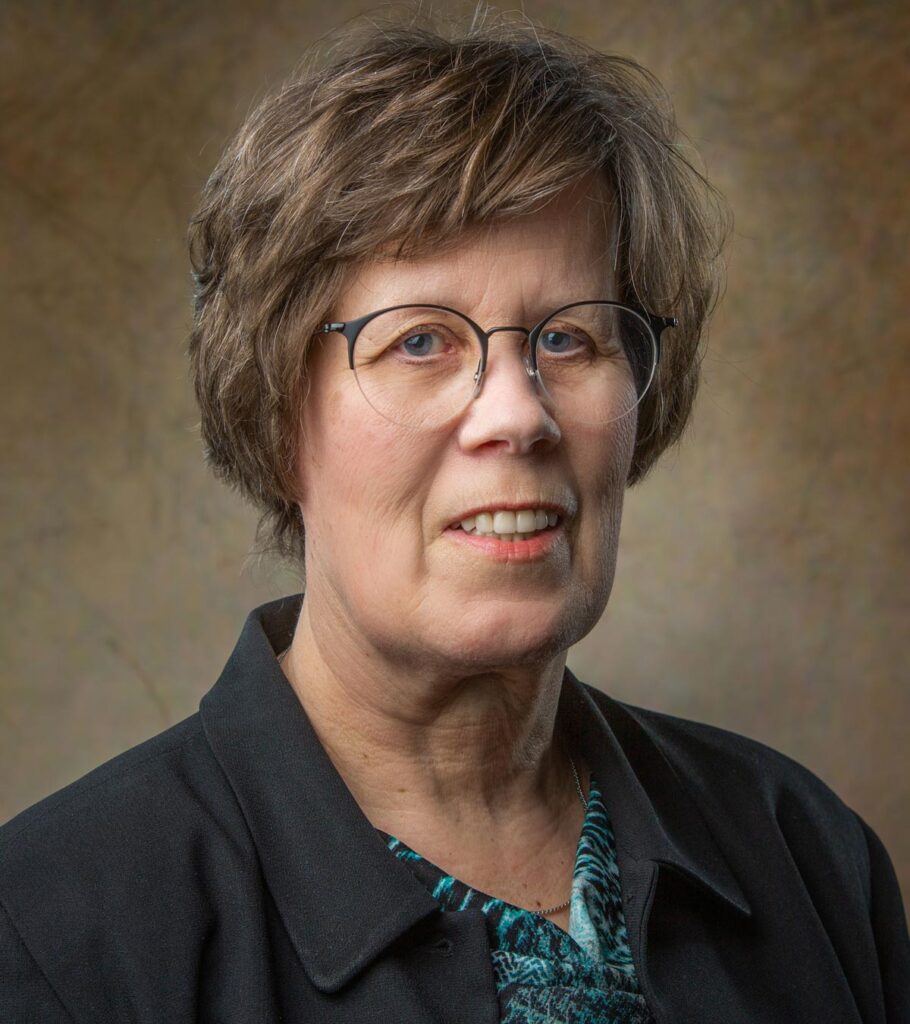
Tammy Swailes
Tammy Swailes is passionate about cross-cultural Christian education, so working with INSTE Global Bible College to disciple and equip leaders throughout Europe and beyond is a great fit! Tammy has lived in Europe since 1999 – first in Hungary and now Ukraine. Before that, she was in Japan, as well as Spokane, Washington. She now serves as INSTE regional director in Europe, assisting INSTE programs in five languages. Tammy has her undergraduate degrees in both Missions and Christian Education, and a MA in Intercultural Studies. Photography, good coffee, multi-cultural experiences, and the family’s Yorkie are some of Tammy’s favorite things.
Featured Articles
UN TAPIZ FINAMENTE TEJIDO: La Biblia Abierta de Trinidad y Tobago celebra setenta años de ministerio
Published
3 months agoon
May 1, 2024
Las Iglesias Estándar de la Biblia Abierta de Trinidad y Tobago (OBSCTT, por sus siglas en inglés) conmemoran en 2024 su aniversario de platino: Setenta años de fe, fortaleza y comunidad. La historia de la Biblia Abierta de Trinidad y Tobago se desarrolla simbólicamente como un tapiz finamente tejido, en el que se mezclan diversos hilos y patrones vibrantes y complejos para formar una hermosa obra de arte. Durante siete décadas, Dios ha tejido la historia de OBSCTT, mezclando hábilmente elementos como los misioneros, el alcance innovador, la oración poderosa, un discipulado unificado, la acogida del avivamiento y el pueblo vibrante de Trinidad y Tobago. Cada hilo, aunque parezca insignificante, desempeña un papel distintivo que contribuye al magnífico tapiz de su trayectoria.
La República de Trinidad y Tobago, ubicada en el Mar Caribe Sur, cuenta con una rica diversidad cultural y religiosa que refleja influencias africanas, indias, europeas, chinas y de otros lugares. Allí se practican creencias cristianas, hindúes, musulmanas e indígenas. A pesar de la pequeña extensión geográfica de Trinidad y Tobago y de su población de tan sólo un millón cuatrocientos mil habitantes, la influencia de la Biblia Abierta ha dejado un impacto significativo tanto a nivel nacional como mundial, al contribuir a los ámbitos social, cívico y al de la asistencia médica de Trinidad y Tobago (un ejemplo fundamental es la fundación del Centro Médico Acrópolis). La OBSCTT cuenta con casi cien iglesias, numerosas guarderías, un colegio secundario privado, INSTE, y un instituto bíblico con tres sedes.

Desde sus inicios en 1956, bajo la dirección de los misioneros Kaare y Jean Wilhelmsen, la OBSCTT hizo hincapié en el alcance global. Las iglesias de Trinidad y Tobago, que comenzaron su labor en el país vecino de Granada en 1971, fueron expandiendo su alcance en forma contínua hasta llegar a plantar iglesias en Sudamérica, Norteamérica, África y Europa. Trinidad y Tobago es también la sede de la Escuela de Liderazgo Global (SGL) de Misiones Globales. Los fundadores de la OBSCTT estaban llenos de celo misionero e implantaron esta pasión en el ADN de las iglesias. Hoy en día, es una parte vital de su identidad.
Desde la familia Wilhelmsen, los primeros misioneros, hasta la actual familia Lumbard, treinta y ocho misioneros de la Biblia Abierta han servido en las islas. Estos misioneros fundaron una base sólida y equiparon a líderes locales competentes. Hoy en día, la relación entre los líderes locales con las Misiones Globales de la Biblia Abierta es una asociación de colaboración única. Esta colaboración y sentido de unidad fue parte de los cimientos establecidos por los misioneros desde el principio. El Dr. Don Bryan y su esposa Ruth fueron misioneros en la época en que se fundó La Biblia Abierta en Trinidad y Tobago (1956-1970). El Dr. Bryan habló de cómo la unidad fue clave para el éxito de la Biblia Abierta en Trinidad. A través de la oración, las iglesias y los misioneros trabajaron juntos como un equipo «para que el diablo no pudiera dividirnos».
La oración fue el valor unificador y cimentador de las iglesias. En especial, en la iglesia de San Fernando las reuniones de oración de los Movedores de Montañas de los jueves por la mañana hacían resonar las palabras de Hechos 19:11: «Dios hacía milagros extraordinarios…». (NVI). Los milagros fueron la norma, transformaron vidas al abrir los ojos de los ciegos y expulsar demonios. La poderosa proclamación del Evangelio y la evidente presencia de Dios llevaron a menudo a familias enteras a entregar sus vidas a Cristo, lo que trajo consigo un crecimiento explosivo. Setenta años después, los poderes de las tinieblas persisten, pero siguen siendo confrontados en los servicios de oración de muchas iglesias.

Los misioneros, reconociendo el valor que los trinitenses atribuían a la educación, vieron una oportunidad para el Reino y crearon en 1967 la Escuela Secundaria de la Biblia Abierta (OBHS, por sus siglas en inglés), que hacía hincapié en el desarrollo académico y espiritual de un alumnado de diversas religiones. Llegó un momento en que la matrícula de la OBHS era la mayor de la historia de las escuelas privadas de la isla.
El Seminario de la Biblia Abierta de Trinidad (OBIT, por sus siglas en inglés), fundado en 1956, sigue formando a líderes cristianos para ministerios pastorales, misioneros y de evangelización. El seminario incorpora una formación teológica y práctica única que constituye un motor para la evangelización y el discipulado. En sus inicios, los equipos de estudiantes se desplazaban cada jueves a las zonas periféricas para poner en práctica lo aprendido en la escuela bíblica. Allí celebraron reuniones al aire libre, se pusieron en contacto e instruyeron a los asistentes de los Movedores de Montañas, reunieron a otros e iniciaron escuelas dominicales, y bautizaron a nuevos creyentes. Su «práctica» del ministerio comenzó a dar a luz nuevas iglesias, ¡y cinco de las primeras seis iglesias de la OBSCTT fueron fundadas por los propios estudiantes mientras aún estaban en la escuela!

Al igual que hay muchos misioneros de la Biblia Abierta entretejidos en el tapiz de la OBSCTT, así Trinidad y Tobago está entretejida en los tapices de los propios misioneros, dejando una huella indeleble en sus vidas. No fue sólo la magnífica comida de las islas lo que les impresionó. Más importante aún, fueron las relaciones que entablaron allí las que dieron forma a los misioneros. Si bien muchos de los siguientes misioneros se han unido a la «gran nube de testigos», otros nos cuentan algunas de sus historias (haga clic en los enlaces para ver los vídeos de las entrevistas): Kaare y Jean Wilhelmsen, Minnie Bruns, Don y Ruth Bryan, A.E. y Ginny Mitchell, Margaret Crandall, Dora Turner, William y Donna Whitlow, Robert y Wanda Moon, Ed y Betty Wood, Weldon y Rosetta Davis, Melvin y Barbara Kelderman, Tom y Helen Clark, Clayton y Suzanne Crymes, Leona Janzen (Venditti), John y Nadine Simmons, Phil y Priscilla Newell, Dan y Mardell LeLaCheur, Harvey y Alys Klapstein, Grant y Miriam Sickles, y Mike y Pamela Lumbard.
La historia de la Biblia Abierta de Trinidad y Tobago se desarrolla simbólicamente como un tapiz finamente tejido, en el que se mezclan diversos hilos y patrones vibrantes y complejos para formar una hermosa obra de arte.
Los hilos más vibrantes y prominentes en el tapiz que Dios está tejiendo en las Iglesias de la Biblia Abierta de Trinidad y Tobago son los propios nacionales. El principio de 2 Timoteo 2:2 de encargar la obra a personas idóneas que la transmitirán a otros ha sido clave para el crecimiento y la expansión continuos. Son demasiados nombres para mencionarlos a todos, pero he aquí sólo algunos de los ministros locales que han dirigido con distinción a lo largo de los años: Reverendos Dr. Benjamín Agard, Charles y Charmaine Alexis, Keith Armoogan, Desmond Austin, Carlyle Chankersingh, Munroe Cox, Vicram Hajaree, Leroy Haynes, Dr. Andy y Ann Marie Homer, Benjamín Hunte, Calbert Mark, Romaish Mohan, Raule Reid, Cecil y Debbie Quamina, Errol Ramdass, Fitzroy Griffith, Jr. y Junior Yuille.
El Rev. Dr. Benjamín Agard, Anciano-director nacional de la OBSCTT, da merito a la predicación, desde los primeros días hasta ahora, del evangelio de Cristo y de este crucificado, como la clave del crecimiento numérico y espiritual a lo largo de la historia de la OBSCTT. El enfoque del mensaje de la cruz sigue siendo fundamental para su identidad. La ministra Ann Marie Homer lo resumió así: «El solo hecho de que usted pueda entrar en cualquier iglesia de la Biblia Abierta un domingo por la mañana y escuchar el verdadero evangelio de Jesucristo predicado, constituye un gran logro. No nos hemos desviado».
Setenta años después, en esta celebración de su jubileo de platino, nos unimos a las Iglesias Estándar de la Biblia Abierta de Trinidad y Tobago para mirar hacia atrás, al tapiz que Dios ha tejido a través de ellos y celebrar Su buena obra. Hoy, la historia de la OBSCTT no sólo llega a las islas de Trinidad y Tobago, sino que se extiende hasta los confines de la tierra. Como dice el Salmo 2:8: «Pídeme, y te daré por herencia las naciones, y como posesión tuya los confines de la tierra.» (RVR-60). Qué herencia tan increíble y qué legado tan rico: ¡sólo podemos imaginar lo que Dios hará a continuación!
Sobre la autora

Tammy Swailes
¡Tammy Swailes es una apasionada de la educación cristiana multicultural, por lo que trabajar con el Seminario Bíblico Global INSTE para discipular y equipar a los líderes en toda Europa y más allá encaja a la perfección! Tammy ha vivido en Europa desde 1999 (primero en Hungría y ahora en Ucrania). Antes de eso, vivió en Japón, así como en Spokane, Washington. En la actualidad se desempeña como directora regional de INSTE en Europa, colaborando con los programas de INSTE en cinco idiomas. Tammy tiene una licenciatura en Misiones y otra en Educación Cristiana, y una maestría en Estudios Interculturales. Algunas de las cosas que más le gustan a Tammy son la fotografía, el buen café, las experiencias multiculturales y el perrito Yorkie de la familia.
Follow Us
Subscribe to the Message



